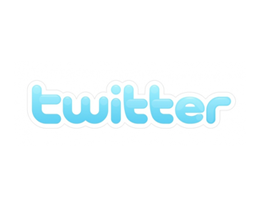Topic: Media Research Center
 With the conservative war against Facebook failing, it was time for the Media Research Center to redirect its social-media-hates-conservatives narrative to a different company.
With the conservative war against Facebook failing, it was time for the Media Research Center to redirect its social-media-hates-conservatives narrative to a different company.
In an Oct. 30 post, Alexander Hall attacked Twitter for discontinuing all political advertising on its platform, claiming it kowtowed to a "media crusade to try and push all social media platforms to censor political advertisement in a blatant media attack on President Donald Trump," adding that "The timing of this policy change comes amidst the backlash against Facebook CEO Mark Zuckerberg from liberals like Sen. Elizabeth Warren and the liberal media for the free speech decision on political ads and allowing outlets like Breitbart to be among Facebook’s curated news sources."
The next day, MRC chief Brent Bozell bizarrely -- though not unexpectedly, since the narrative must be perpetuated -- claimed that the real victims of the Twitter ad ban are, yes, conservatives:
To pretend Twitter is taking the moral high ground in banning political ads is laughable. Twitter sees the backlash Facebook has received for embracing free speech in advertising and with this ban, hopes to force their hand into doing the same.
A key reason organizations and individuals buy ads is to promote an issue that they cannot get covered by conventional means. We have seen how the social media giants have used their content policies to suppress conservative speech. Because of this, liberal messaging dominates Twitter and by restricting ads, Twitter can further limit the ability of conservatives to get their message heard.
By including ‘issue ads’ in this ban, Twitter has given itself the power to draw the lines on what is and is not ‘political.’ Make no mistake, this is not an easily defined space and with Twitter’s history of liberal activism, conservatives should be very concerned.
We missed the part where Twitter said only conservative political ads would be banned. Liberal views would presumably also be affected as well.
So did Jeffrey Lord, who echoed Bozell in a Nov. 2 post by insisting that the ad ban "isn’t about anything other than silencing conservatives," adding, "What [Twitter CEO Jack] Dorsey is really about is silencing conservatives, so that the liberal media — social media and all the rest — can put out their modern day equivalents of that old LBJ 'Daisy' commercial out there and, in Dorsey’s own phrase again, “influence votes to affect the lives of millions.” With the liberal media, as was done in 1964, doing the Democrats work for them."
Bozell and Tim Graham used their Nov. 6 column to rail against the ad ban, at first graciously agreeing to "stipulate from the outset that Twitter should have that right to do so, as should CBS, Comedy Central and the Disney Channel" but then playing the victim card, ranting that "we have seen how the social media giants have used their content policies to suppress conservative speech. By restricting ads, Twitter can further limit the ability of conservatives to get their message heard." The two then conjured up anti-conservative conspiracies: "And with Twitter's history of liberal activism, conservatives should be very concerned. Candidate X will be automatically banned, but what leftist groups will wiggle into that paid space as a nonpartisan "public interest group"?
Graham and Bozell then do the un-conservative thing of pushing for more government regulation of media by contradicting their opening statement that Twitter had a right to ban ads:
Broadcast television networks must, as a matter of law, carry federal candidates' ads. As a matter of policy, we think this regulation is obnoxious and should be removed. Twitter has an even greater reach — and, we believe, influence — than TV. So if the feds force broadcasters to carry candidates, why not apply the same rules to Twitter? They should drop the antiquated broadcast requirements.
Again: The narrative must be perpetuated, even if it means trampling conservative principles to do so.








